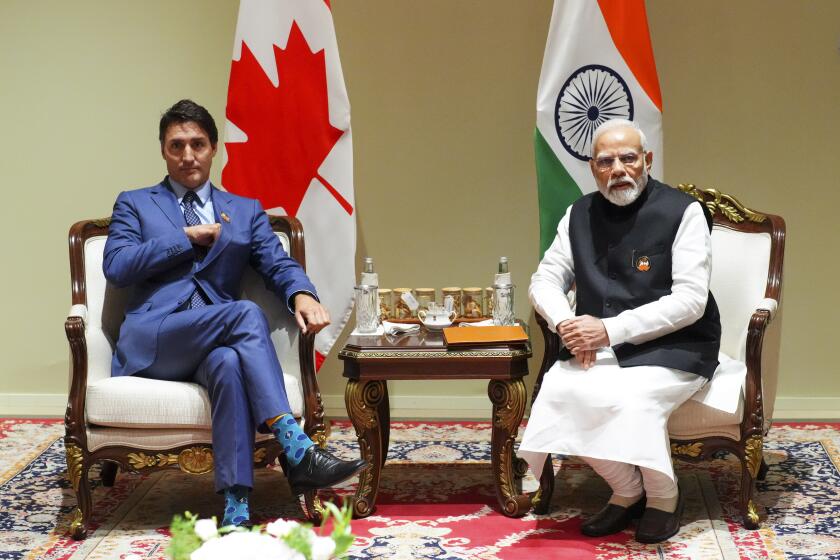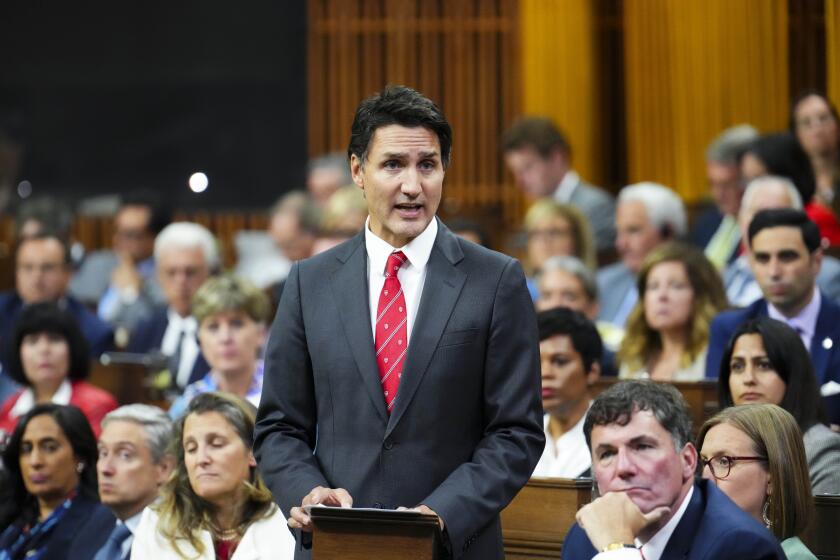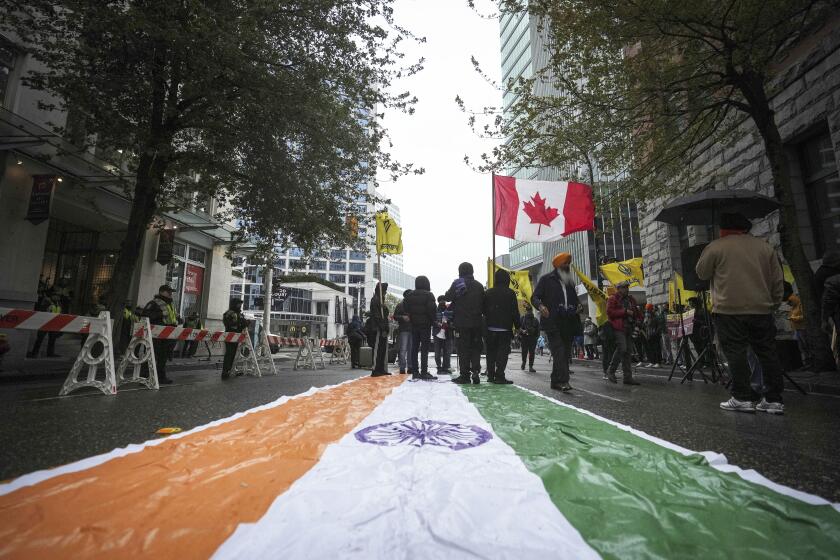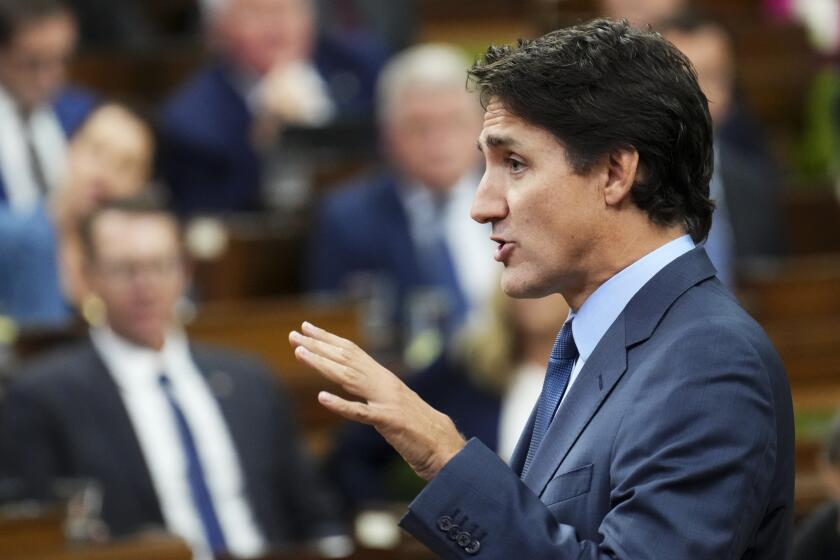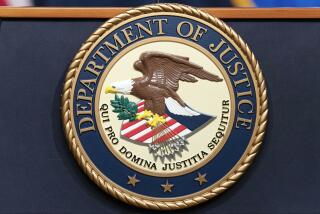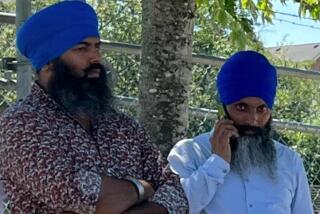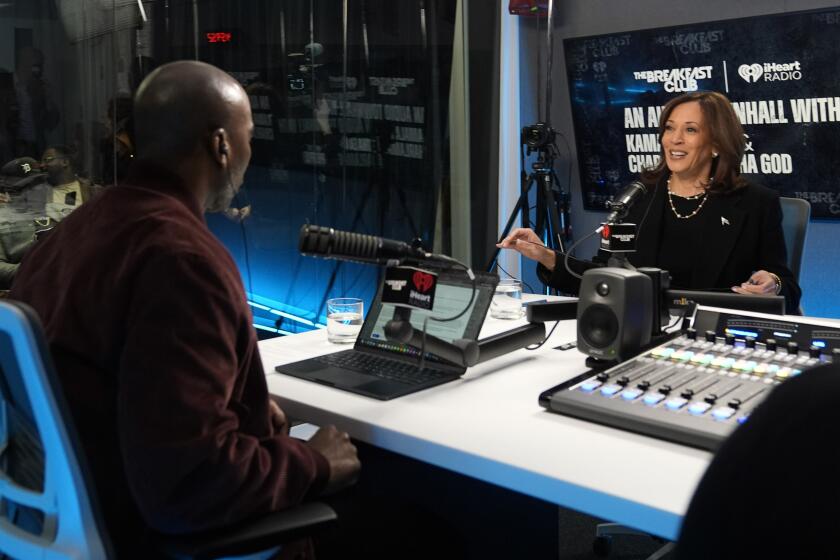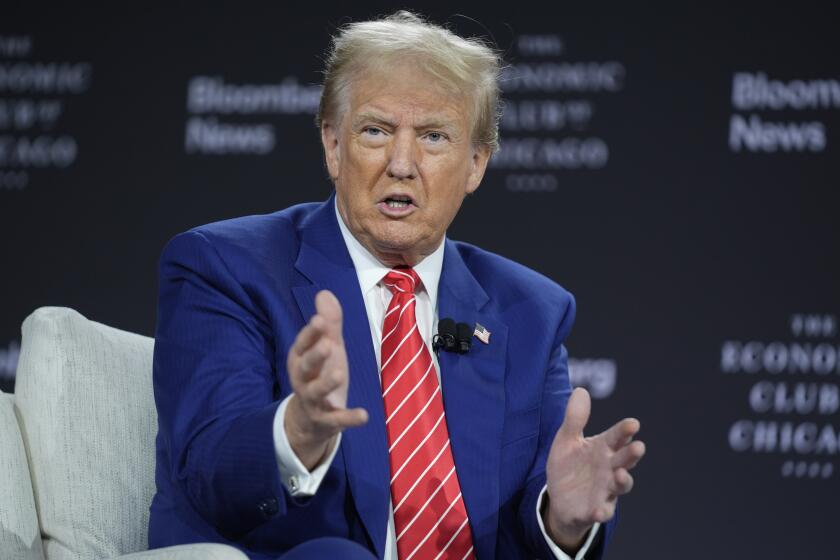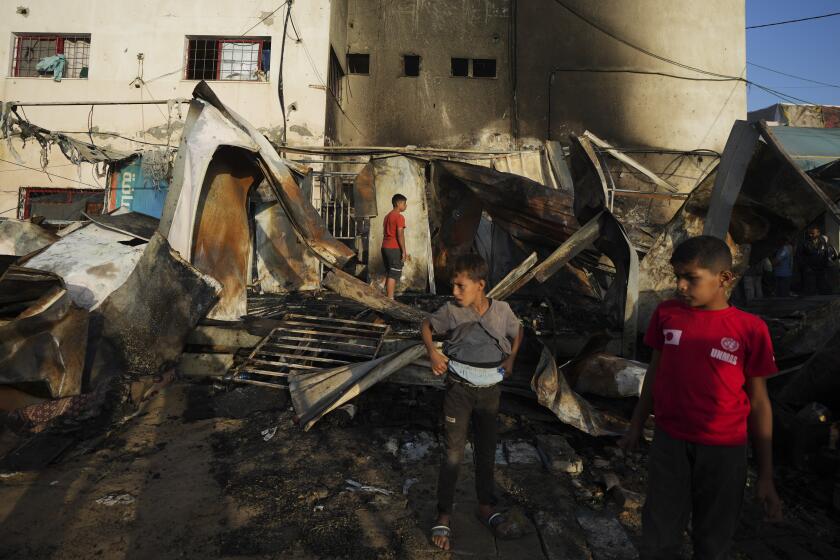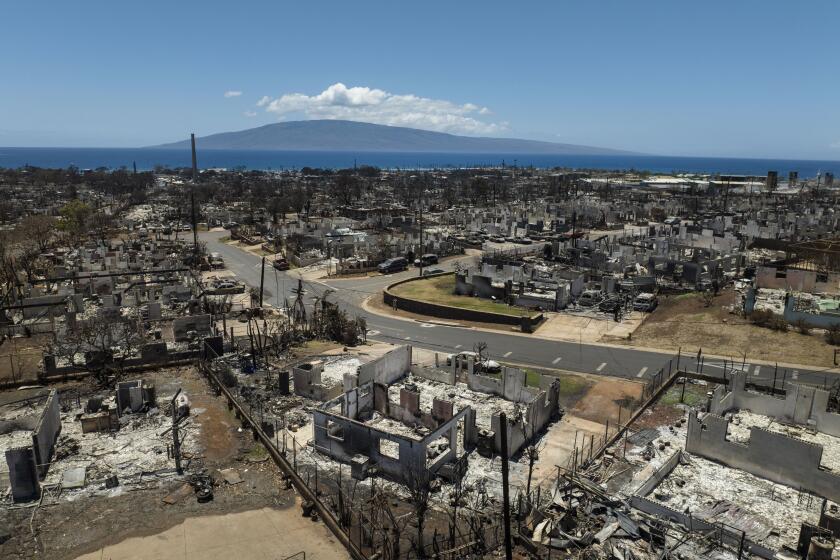Canada and India expel each other’s diplomats in escalating dispute over a 2023 assassination

Canada and India each expelled six diplomats Monday in tit-for-tat moves as part of an escalating dispute over the June 2023 assassination of a Sikh activist in Canada.
Foreign Minister Mélanie Joly said that Canada was expelling six Indian diplomats, including the high commissioner, or ambassador, after police uncovered evidence of a targeted campaign against Canadian citizens by agents of the Indian government.
Shortly afterward, the Indian foreign ministry said that it was expelling six Canadian diplomats, including the acting high commissioner and the deputy high commissioner. It said in a statement that the diplomats were told to leave India by the end of Saturday.
The ministry had said earlier Monday that India was withdrawing its diplomats, after rejecting Canada’s diplomatic communication on Sunday that said the Indian ambassador was a “person of interest” in the assassination.
A senior Canadian official said that Canada expelled the Indian diplomats first before they withdrew. Both officials spoke on condition of anonymity because they weren’t authorized to speak publicly on the matter.
Joly said in a statement that police gathered information that established links between criminal investigations and Indian government agents. Joly said that India was asked to waive diplomatic and consular immunities and to cooperate in the investigation.
After its explosive allegation of possible Indian involvement in the killing of one of its citizens, Canada receives only muted support from allies.
“Regrettably, as India did not agree and given the ongoing public safety concerns for Canadians, Canada served notices of expulsion to these individuals. Subsequent to those notices, India announced it would withdraw its officials,” Joly said.
Canadian Prime Minister Justin Trudeau said last year that there were credible allegations that the Indian government had links to the June 2023 assassination in Canada of Sikh activist Hardeep Singh Nijjar.
“The decision to expel these individuals was made with great consideration and only after the [Royal Canadian Mounted Police] gathered ample, clear and concrete evidence which identified six individuals as persons of interest in the Nijjar case,” Joly said in her statement.
“We continue to ask that the Indian government support the ongoing investigation in the Nijjar case, as it remains in both our countries’ interest to get to the bottom of this,” she said.
Mike Duheme, commissioner of the Royal Canadian Mounted Police, said that officers have evidence tying Indian government agents to other homicides and violent acts in Canada.
He declined to provide specifics, but said there have been well over a dozen credible and imminent threats that have resulted in police warning members of the South Asian community, notably the pro-Khalistan, or Sikh independence, movement. He added that attempts to have discussions with Indian law enforcement were unsuccessful.
Prime Minister Justin Trudeau says Canada is investigating whether India is linked to the assassination of a Sikh Canadian citizen in British Columbia.
“The team has learned a significant amount of information about the breadth and depth of criminal activity orchestrated by agents of the government of India, and consequential threats to the safety and security of Canadians and individuals living in Canada,” Duheme said.
RCMP Assistant Commissioner Brigitte Gauvin called it extremely concerning.
“Indian diplomats and consular officials are there to protect the interests of their nationals based in Canada and their national interest and not to be part of criminal activity or intimidation, so we take that very seriously. That is without a doubt a contravention of the Vienna Convention on Diplomatic Relations,” Gauvin said.
India has rejected the accusation as absurd.
Nijjar, 45, was fatally shot in his pickup truck in June 2023 after he left the Sikh temple he led in the city of Surrey, British Columbia. An Indian-born citizen of Canada, he owned a plumbing business and was a leader in what remains of a once-strong movement to create an independent Sikh homeland.
India designated him a terrorist in 2020, and at the time of his death had been seeking his arrest for alleged involvement in an attack on a Hindu priest.
In response to the allegations, India told Canada last year to remove 41 of its 62 diplomats in the country. Ever since, the relations between the two countries have been frosty.
India has ordered Canada to slash its diplomatic presence in the country by two-thirds, escalating a confrontation over the death of a Sikh activist.
The pro-Khalistan movement is a thorny issue between India and Canada. New Delhi has repeatedly criticized Trudeau’s government for being soft on supporters of the Khalistan movement who reside in Canada. The Khalistan movement is banned in India, but has support among the Sikh diaspora, particularly in Canada.
India has been asking countries including Canada, Australia and the U.K. to take legal action against Sikh activists. India has particularly raised these concerns with Canada, where Sikhs make up nearly 2% of the country’s population.
The Indian foreign ministry said Monday that “India reserves the right to take further steps in response to the Trudeau government’s support for extremism, violence and separatism against India.”
The ministry also summoned the top Canadian diplomat in New Delhi and told him that “the baseless targeting” of the Indian high commissioner and other diplomats and officials in Canada “was completely unacceptable.”
“We have no faith in the current Canadian government’s commitment to ensure their security,” it said.
Stewart Wheeler, the Canadian diplomat who was directed to leave India, told reporters after being summoned that his government has shared “incredible and irrefutable evidence of ties between agents of the government of India and the murder of a Canadian citizen on Canadian soil.”
Wheeler said India must investigate the allegations and that Canada “stands ready to cooperate with India.”
India halts visa services for Canadian citizens and tells Ottawa to reduce its diplomatic staff as a rift widens over the killing of a Sikh activist.
Meanwhile, the U.S. State Department said in a statement Monday that an Indian inquiry committee set up to investigate a plot to assassinate another prominent Sikh separatist leader living in New York would be traveling to Washington on Tuesday as part of their ongoing investigations to discuss the case.
“Additionally, India has informed the United States they are continuing their efforts to investigate other linkages of the former government employee and will determine follow-up steps, as necessary,” it said.
Last year, U.S. prosecutors said that an Indian government official directed the plot to assassinate Sikh separatist leader Gurpatwant Singh Pannun on American soil and announced charges against a man they said was part of the thwarted conspiracy.
The Indian government official was neither charged nor identified by name, but was described as a “senior field officer” with responsibilities in security management and intelligence, said to have previously served in India’s Central Reserve Police Force.
New Delhi at that time had expressed concern after the U.S. raised the issue, and said India takes it seriously.
Gillies, Hussain and Saaliq write for the Associated Press. Saaliq reported from New Delhi, and Hussain from Srinagar, India.
More to Read
Sign up for Essential California
The most important California stories and recommendations in your inbox every morning.
You may occasionally receive promotional content from the Los Angeles Times.
